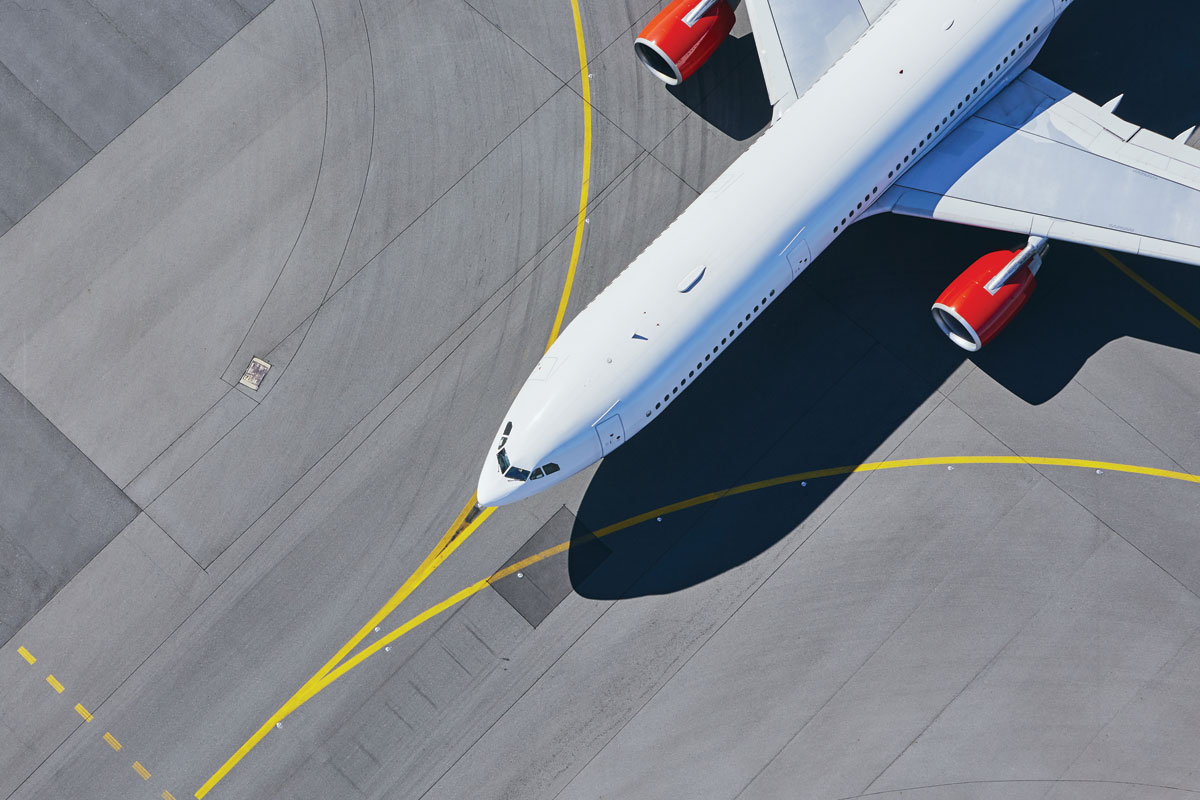5 Trends That Will Shape Airline Retailing in 2023

Skift Take
This sponsored content was created in collaboration with a Skift partner.
As 2022 comes to a close, the future looks brighter for the aviation industry. Despite the clear challenges standing in the way of a full recovery — including fuel prices, labor shortages, and global economic uncertainty — 3.8 billion passengers are expected to keep the skies busy in the new year and generate $498 billion in revenue, according to estimates from the International Air Transport Association.
What about what’s happening behind the scenes? As airlines work to overhaul backend operations and upgrade technologies to deliver an optimal traveler experience, Skift caught up with experts at Airlines Reporting Corporation (ARC) for a look at how airline executives and travel managers should be thinking about the key changes that will shape the year ahead. Here are five takeaways that industry leaders should keep top of mind for 2023.
1. Data Will Continue to Be King
While airlines have relied on historical data to power their decision-making models, Steve Solomon, chief commercial officer at ARC, pointed out that changing traveler behaviors and unpredictable booking windows are shining a light on the importance of looking at new data sets.
“The pandemic has helped everyone question the rules of the game,” Solomon said. “While travel used to follow a year-in, year-out seasonality pattern, the pandemic has taught us that’s not necessarily the case all the time. The data is helping the entire ecosystem understand the changes that are taking place.”
Sarah Boyd, senior manager of airline retailing strategies at ARC, highlighted that the mountain of data does more than make a difference for airlines — it can transform the way their biggest customers work, too.
“There is room for growth and creativity to better utilize data in corporate contracting,” Boyd said. “Right now, you don't have really fast data. It's delayed 30 or 45 days, and it's not very usable in order to change behavior. If you can get that data into your travel manager's hands faster, they will have a better understanding of all their bookings — including bookings made off-channel and leakage — and they can go into negotiations with suppliers for better terms.”
2. Ancillaries Will Continue to Add Opportunities
As business travel picks up and leisure travel continues to help lead the recovery, Shelly Younger, director of airline retailing strategies at ARC, said the importance of ancillaries will increase. However, it’s not just about the existing products available, such as adding bags, choosing seats, and upgrading to the next service class. Airlines are looking to add new products and new vendors to the ecosystem. For example, if an airline’s data shows that a loyalty member always checks one bag, pays for in-flight Wi-Fi, and regularly books a Lyft or an Uber at the airport, there is an opportunity to deliver a seamless booking experience in one transaction.
“It’s not just about dynamic pricing for tickets,” Younger said. “We’re moving toward a world where ancillaries will be dynamically bundled together based on personalized analytics.”
3. More Opportunities Will Create More Complexities
Dynamic bundles will continue to grow, and the products and services included in these bundles will include those provided by third parties. While dynamic bundles have tremendous potential to positively impact the bottom line and build customer loyalty, selling them is one thing — servicing them is another story. As the supplier ecosystem expands, Solomon pointed out that airlines will likely bear the burden of making sure that the passenger has a great experience.
“There will be more third parties involved in the fulfillment for whatever someone buys, but the customer won’t look to the ancillary companies if they have servicing issues,” Solomon said. “They will look at whoever they bought the bundle from and look to them to make it a seamless experience.”
“On the back end, there are all kinds of logistics and administration to ensure you can operationally deliver,” Solomon added. “That’s new for a lot of travel suppliers, and it’s something they will need to master very quickly.”
4. The Break-Up With Legacy Tech Will Accelerate
Throughout the pandemic, the industry has seen big developments with distribution strategies, including ARC’s Direct Connect product, a flexible and cost-effective settlement platform that gives airlines and travel management companies a convenient route to customize their business arrangements and create a better post-ticketing servicing experience. Recently, Air France, KLM, and Qatar joined four existing airlines (United, Singapore Airlines, British Airways, and Avianca) in ARC’s Direct Connect lineup, and the number of airlines that integrate ARC’s Direct Connect will continue to grow.
While a shift to NDC is the current focus, Younger said NDC will lay the foundation for moving from a world of disparate documents to a more efficient, Amazon-style retailing platform using IATA’s ONE Order Standard.
“ONE Order is about pulling all the information stored on separate documents into one place,” Younger said. “You don't have an e-ticket database, an EMD database, and a database for internal proprietary documents. Instead, you're putting it all inside an order that feels very similar to Amazon.” She continued, “You might order 40 different products on Amazon that are fulfilled by different partners, but you go to one central place for all your needs. From a retailing perspective, it allows you to know much more about customer behaviors. It’s much easier to pull and action the data together.”
5. Forward-Thinking Corporations Will Use Travel Policies as an Employee Perk
Changes in airline retailing tend to focus on technical requirements and systems integrations. However, among the swirl of acronyms — API, XML, NDC, EMD, and more — we shouldn’t lose sight of the most important piece of the travel industry: the customers. Right now, those customers are dealing with a range of frustrations when managing their air travel.
It’s an especially big challenge for business travelers. As some employers work to motivate people to come back to the office for a few hours, it’s even harder to convince them to travel again for a few nights each week — particularly if they face the typical corporate policy limitations that make booking a work trip feel clunky, frugal, and frustrating.
“The war on talent continues to be very hot in many labor market sectors,” Boyd said. “Job candidates are asking about a corporation’s travel policy to understand if they can use their favorite websites and apps to book and whether they’re allowed to book a premium cabin or upgraded product on an airline they prefer.”
As employees work to attract the right people, a more flexible travel policy can be just as attractive as a bigger paycheck.
“Organizations have an opportunity to differentiate their employee experience based on their travel program,” Solomon said. “Travel is going to cost money. It’s up to travel managers to figure out how to optimize the line item in their budgets as a way to build a more robust recruiting and retention tool. In 2023, use it as a chance to invest in your employees who are willing to be road warriors. The right approach to travel management can help reinforce why they’re happy to work for your organization.”
This article was created collaboratively by Airlines Reporting Corporation (ARC) and Skift’s branded content studio, SkiftX.




